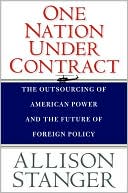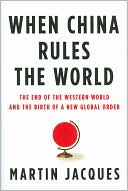One Nation Under Contract: The Outsourcing of American Power and the Future of Foreign Policy
Search in google:
International relations scholar Allison Stanger shows how contractors became an integral part of American foreign policy, often in scandalous ways—but also maintains that contractors aren’t the problem; the absence of good government is. Outsourcing done right is, in fact, indispensable to America’s interests in the information age. Stanger makes three arguments. · The outsourcing of U.S. government activities is far greater than most people realize, has been very poorly managed, and has inadvertently militarized American foreign policy;· Despite this mismanagement, public-private partnerships are here to stay, so we had better learn to do them right;· With improved transparency and accountability, these partnerships can significantly extend the reach and effectiveness of U.S. efforts abroad. The growing use of private contractors predates the Bush Administration, and while his era saw the practice rise to unprecedented levels, Stanger argues that it is both impossible and undesirable to turn back the clock and simply re-absorb all outsourced functions back into government. Through explorations of the evolution of military outsourcing, the privatization of diplomacy, our dysfunctional homeland security apparatus, and the slow death of the U.S. Agency for International Development, Stanger shows that the requisite public-sector expertise to implement foreign policy no longer exists. The successful activities of charities and NGOs, coupled with the growing participation of multinational corporations in development efforts, make a new approach essential. Provocative and far-reaching, One Nation Under Contract presents a bold vision of what that new approach must be. Publishers Weekly Stanger, professor of international politics and economics at Middlebury College, comes to admirably nuanced conclusions in this important assessment of the trend of outsourcing critical tasks in the areas of foreign aid, defense, diplomacy and domestic security. Her analysis finds nothing inherently pernicious in the Bush administration's outsourcing of Iraqi security and reconstruction; contracting is a necessity given the ascendancy of the private sector as a key player in diplomacy in a globalized world. The executive branch's error has been to outsource “proper oversight” and contractor accountability—a “laissez-faire” approach she finds dangerous. Stanger is also troubled by the Pentagon's usurpation (and militarizing) of diplomatic and nation-building roles previously under the aegis of the State Department. She argues that the government must recognize that power in the 21st century “flows from new sources” and complacency at this stage threatens the government with enervation and possible obsolescence. These are vital, well-made and worrying points—readers will hope that the executive branch will heed the author's call to “take the plunge and re-imagine government itself.” (Nov.)








